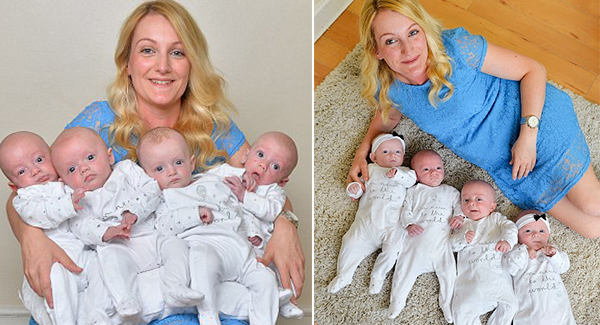Not just because the two boys and two girls are gorgeous, but because a pair of quadruplets in England has made the news. The quads beat the odds by having each child come from a different egg and avoiding IVF (IVF).
Amelia, Sofia, Aston, and Roman were born in late February to Katalina Martin and Matthew Davis. Both Martin and Davis each have a child from a previous marriage, but they told the Daily Mail that they wanted one more — instead, they got four.
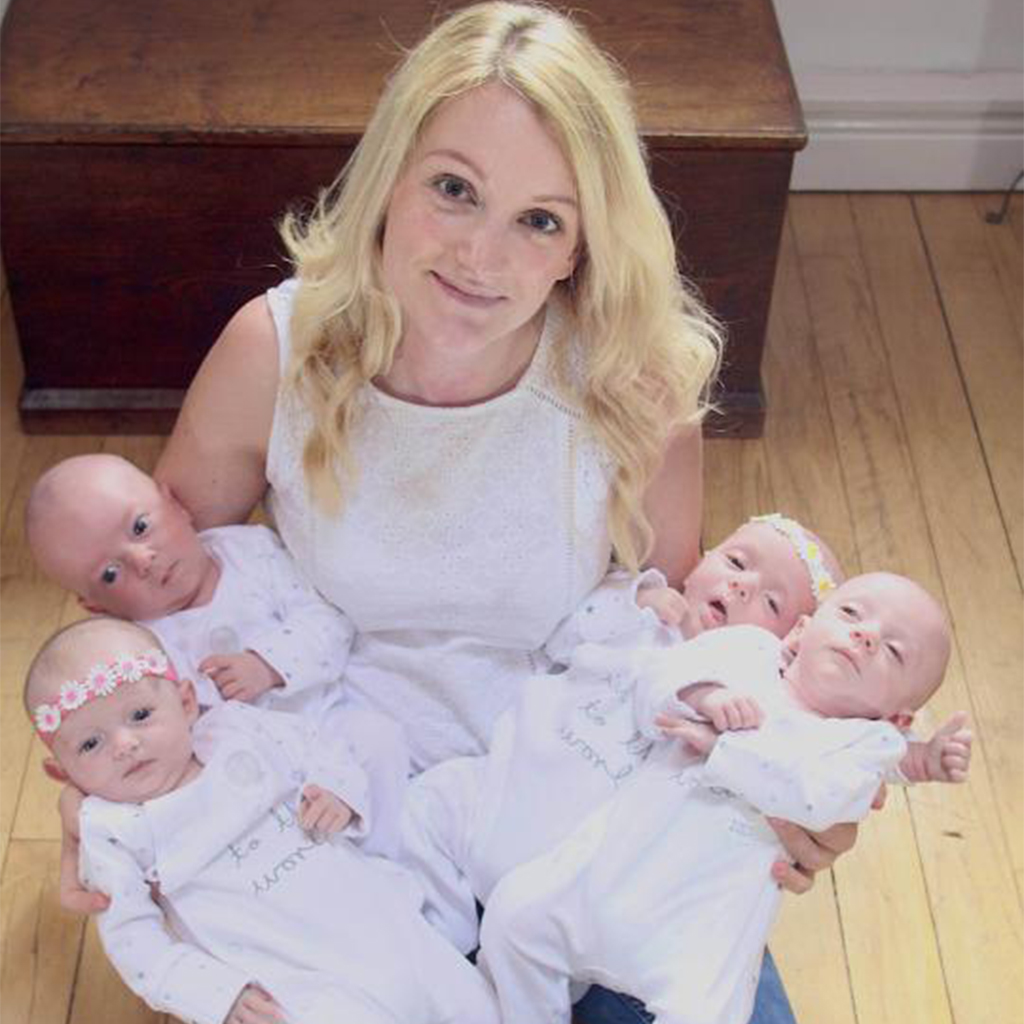
Martin, a 28-year-old hairdresser, and her husband had lost some hope of adding to their family when she was diagnosed with polycystic ovary syndrome (PCOS), according to the Daily Mail. But a few months later, Martin discovered she was pregnant and, during a prenatal scan, got the surprise of her life. “‘The sonographer was scanning me for ages and kept peering at the screen,” she said. Then Martin was told to expect four babies. “I just burst into tears. I didn’t take it in at first.”
At 30 weeks pregnant, Martin gave birth to the quads via C-section. Manchester, at 27 weeks, and the quads were born by cesarean section three weeks later, in February. Sofia weighed 3lb 11oz, Roman 2lb 13oz, Aston 3lb 2oz, and Amelia 3lb 7oz. They all came from a different egg… and they have different personalities,” Martin told the Daily Mail.
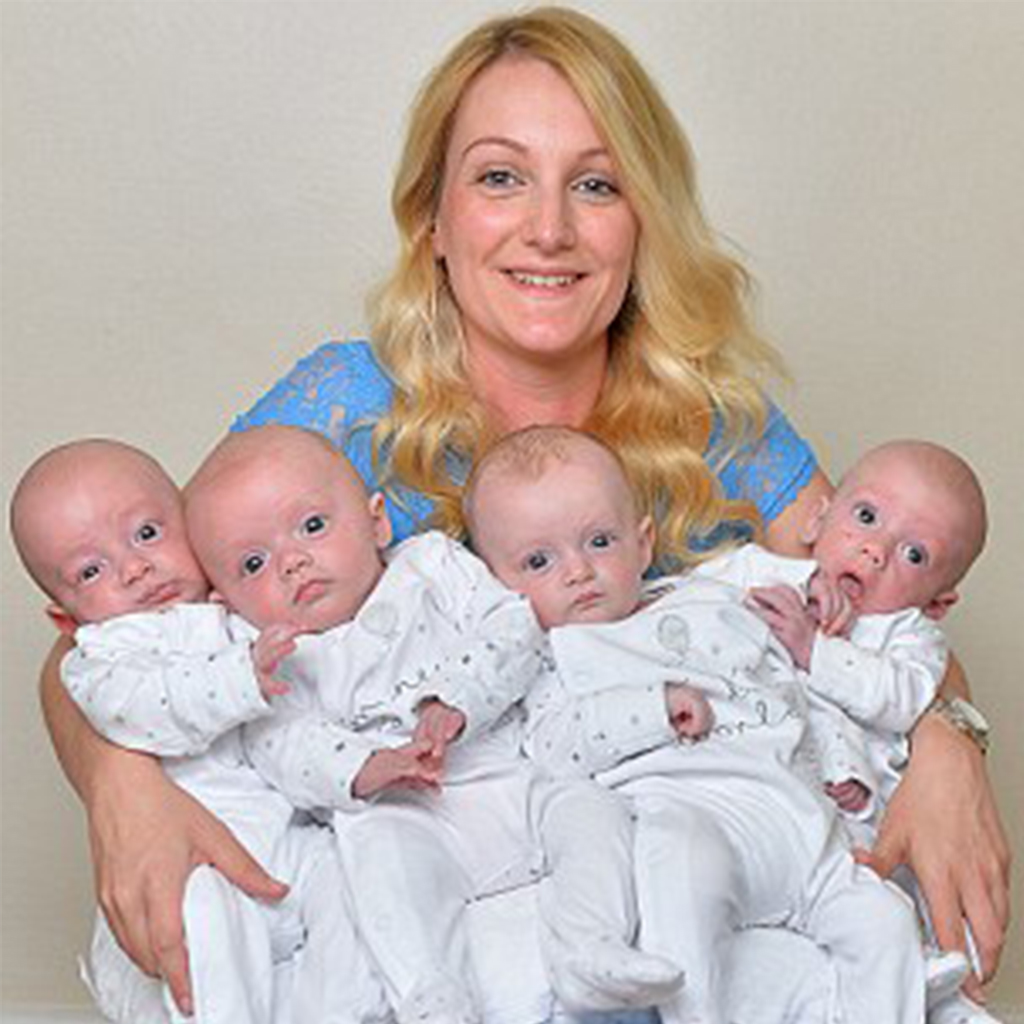
For not only were the four-month-olds conceived naturally, but each also came from a different egg. In the United Kingdom, only three or four sets of quads are born each year. When one or two fertilized eggs divide in the mother’s womb, they are known as twins. This suggests that two or three quads sprang from the same egg. It’s possible that they’re two sets of identical twins.
Experts say they have never heard of a case of non-identical quads being conceived naturally rather than through IVF.
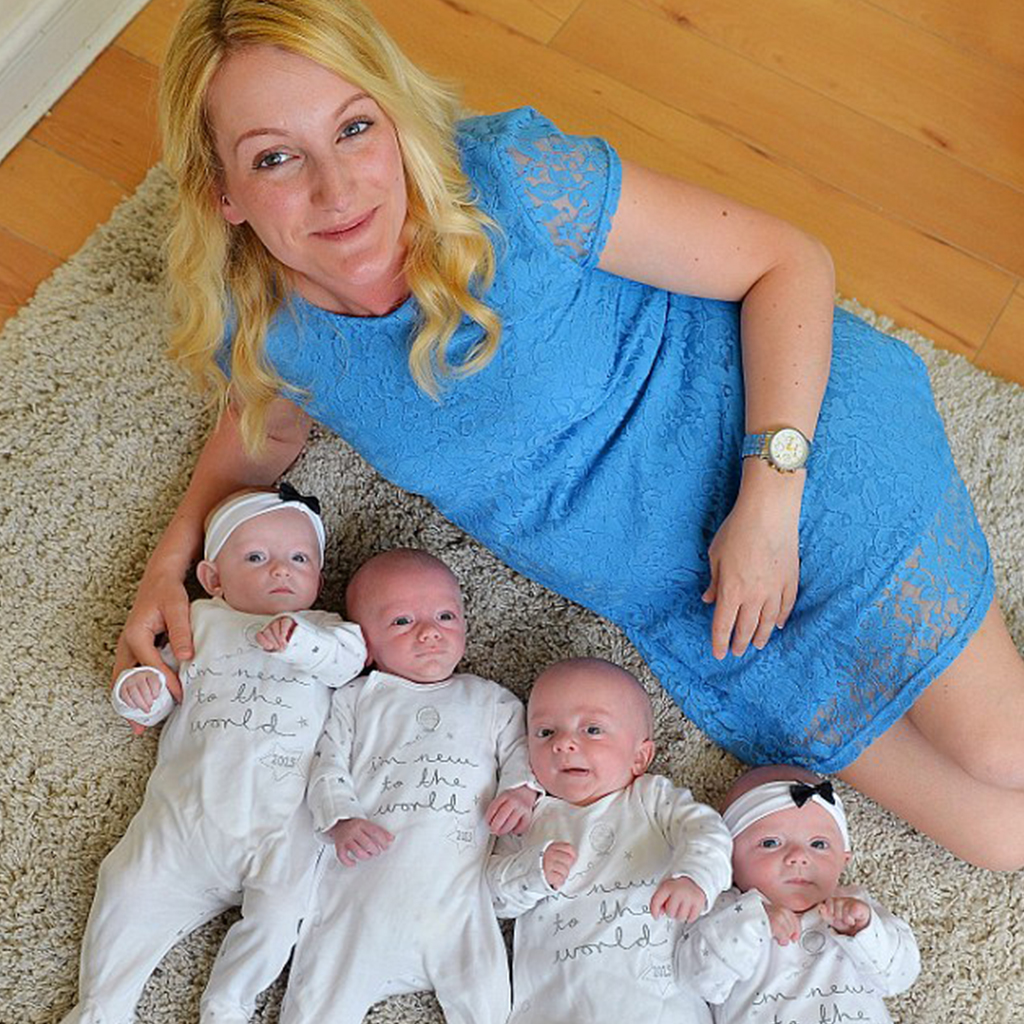
The odds of natural quads are about 700,000 to 1, but experts said they could not estimate the probability of a non-identical set.
Katalina Martin and Matthew Davies each have a kid from a previous relationship, but they wanted to expand their family. They now have an immediate handful, much to their delight and astonishment.
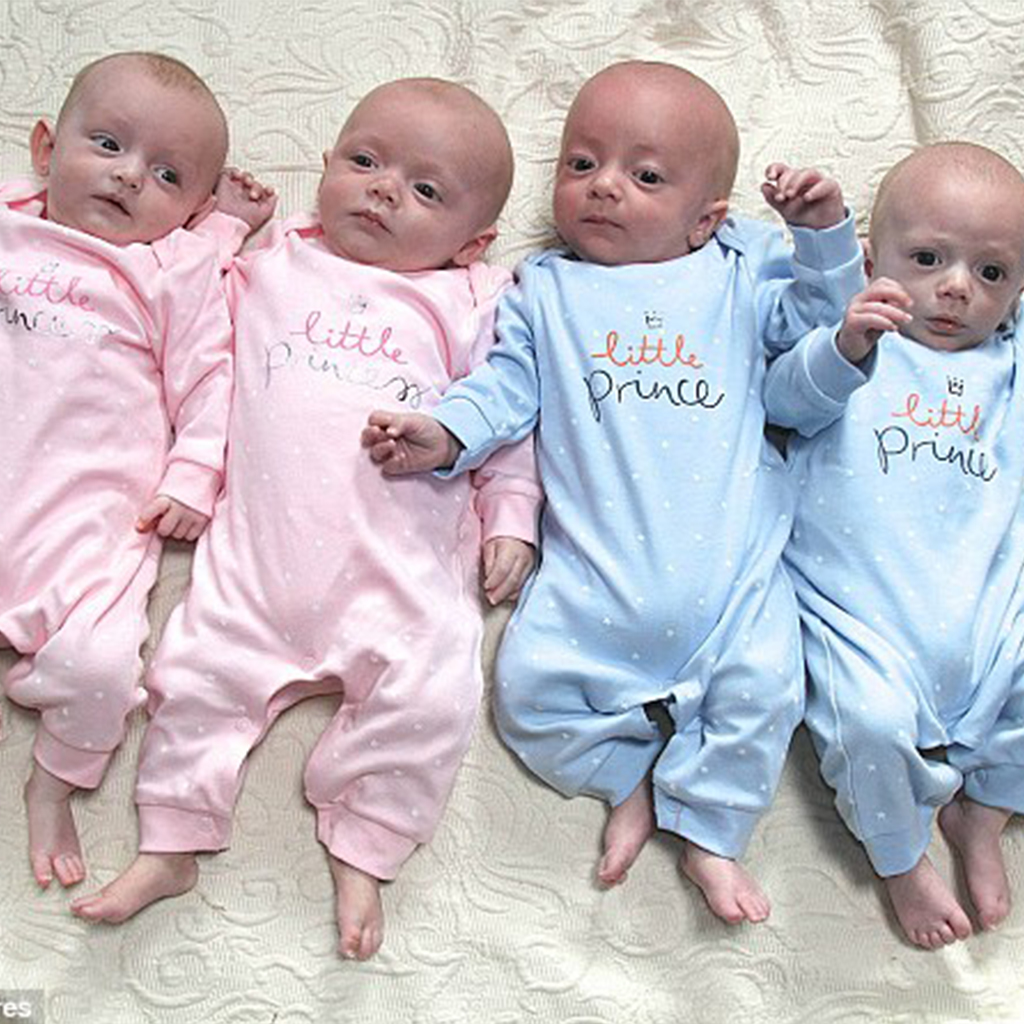
No matter how the adorable quadruplets were conceived, they are a rarity in the U.K., where only three or four sets of quadruplets are born every year, according to the Daily Mail. And Martin is just happy to be the mother of four happy and healthy infants. As she explained, “I was so relieved when they were all born safe and well.”
